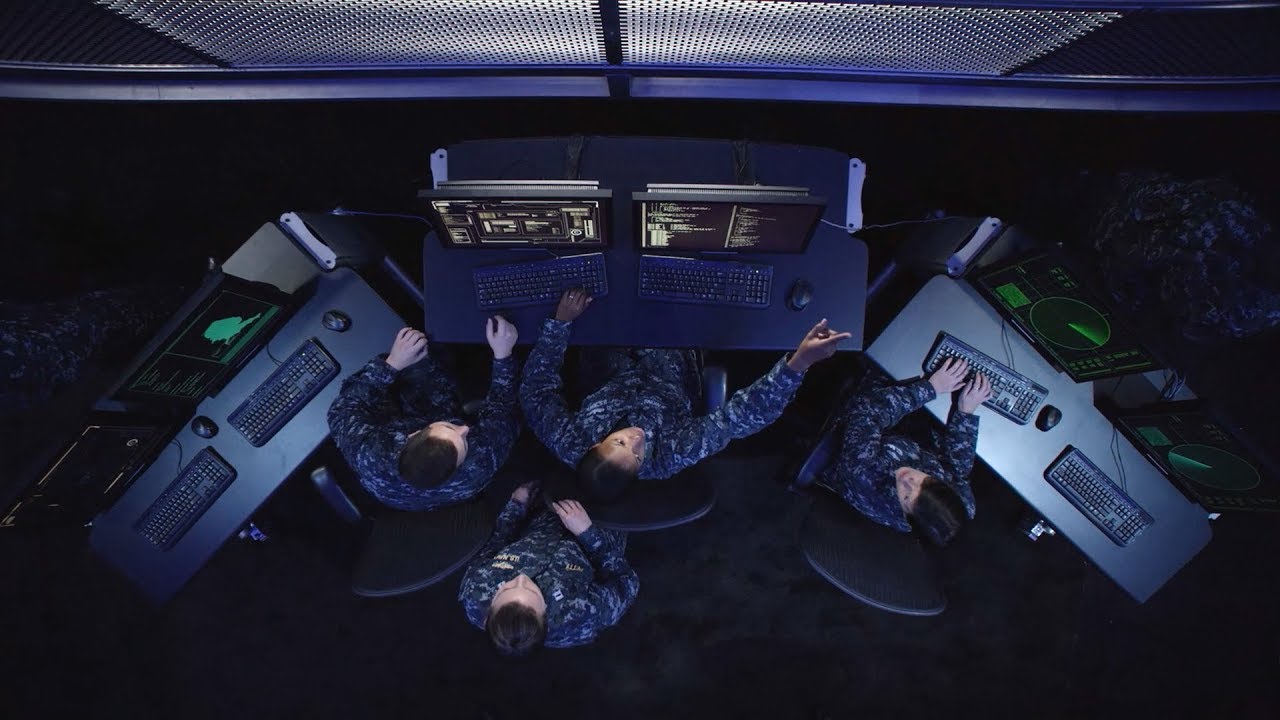What to Expect
More Information
Responsibilities
Information Professional Officers (IPOs) oversee the seamless operation of the global Naval network environment. Their responsibilities include:
- Leading the Naval network warfare missions in developing tactics and procedures to realize tactical, strategic and business advantages afloat and ashore
- Driving interoperability with joint, allied and coalition partners
- Building professional excellence through education, training and certification and milestone qualifications
- Optimizing organizational effectiveness through cutting-edge technologies, knowledge management techniques and a culture of innovation
- Helping to develop and deploy information systems, command and control and space systems
- Serving as a key part of the Information Dominance Corps in its mission to gain a deep understanding of the inner workings of adversaries
- Overseeing the work of Information Systems Technicians – Enlisted Sailors (no degree required) who serve as specialists in information technology
Work Environment
Information Professionals serve in challenging roles of increasing scope and responsibility both afloat and ashore. This could include:
- Serving as part of Battle Group staffs on ships at sea
- Working in C4I/Space/Surveillance on shore tours
- Serving on major Navy and joint staffs
- Serving in command of key communication and surveillance facilities around the globe
Training & Advancement
Those pursuing an Information Professional Officer position are required to attend Officer Candidate School (OCS) in Newport, RI.
Upon completion, candidates typically attend a five-week IP Basic Course of instruction in Pensacola, FL, before or during their initial assignment. IPOs must complete specific qualifications as part of their training during Fleet tours and are expected to pursue advanced education opportunities.
Promotion opportunities are regularly available but competitive and based on performance.
Post-Service Opportunities
Specialized training received and work experience gained in the course of service can lead to valuable credentialing and occupational opportunities in related fields in the civilian sector.
Education Opportunities
Wherever you are in your professional career, the Navy can help ease your financial burdens and advance your career with generous financial assistance and continuing education programs. Beyond professional credentials and certifications, Information Professional Officers can advance their education by:
- Pursuing opportunities at institutions such as Naval Postgraduate School (NPS) or Navy War College (NWC)
- Completing Joint Professional Military Education (JPME) at one of the various service colleges
Postgraduate education is important to the success of the Information Professional. Most IPs will complete a master’s degree in C4I, space, information systems, computer science or modeling and simulation.
There’s also potential to pursue a graduate certificate, DoW certifications, federal executive fellowships and information assurance scholarships and internships.
Qualifications & Requirements
A degree from a four-year college or university is a minimum educational requirement to become a Commissioned Officer. Candidates seeking an Information Professional Officer position must have a bachelor’s degree from a regionally accredited institution in a technical field, preferably in one of following fields: Information Systems, Electrical Engineering, Computer Engineering, Information Operations, Computer Science, Systems Engineering, General Engineering.
All candidates must also be: U.S. citizens, willing to serve worldwide, eligible for a Top Secret/Sensitive Compartmented Information (SCI) security clearance and qualified for sea duty.
General qualifications may vary depending upon whether you’re currently serving, whether you’ve served before or whether you’ve never served before.
Part-Time Opportunities
There are part-time opportunities available as an Information Professional Officer.
Serving part-time as a Navy Reserve Sailor, your duties will be carried out during your scheduled drilling and training periods. During monthly drilling, Information Professional Officers in the Navy Reserve typically work at a location close to their homes.
For annual training, Information Professional Officers may serve anywhere in the world, whether on a ship at sea or at bases and installations on shore.
Take a moment to learn more about the general roles and responsibilities of Navy Reserve Sailors.
Most of what you do in the Navy Reserve is considered training. The basic Navy Reserve commitment involves training a minimum of one weekend a month (referred to as drilling) and two weeks a year (referred to as Annual Training) – or the equivalent of that.
Information Professional Officers in the Navy Reserve serve in an Officer role. Before receiving the ongoing professional training that comes with this job, initial training requirements must first be met.
For current or former Navy Officers (NAVET): Prior experience satisfies the initial leadership training requirement – so you will not need to go through Officer Training again.
Officers who previously held a commission in another United States Military Service, National Oceanic and Atmospheric Administration, Public Health Service, or United States Coast Guard are exempt from attending ODS or LDO/CWO Academy.

































































































































